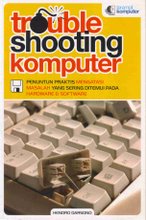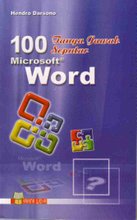When a computer is turned on, it searches for instructions in its memory. Usually, the first set of these instructions is a special program called the operating system, which is the software that makes the computer work. It prompts the user (or other machines) for input and commands, reports the results of these commands and other operations, stores and manages data, and controls the sequence of the software and hardware actions. When the user requests that a program run, the operating system loads the program in the computer’s memory and runs the program. Popular operating systems, such as Microsoft Windows and the Macintosh system (Mac OS), have a graphical user interface (GUI)—that is, a display that uses tiny pictures, or icons, to represent various commands. To execute these commands, the user clicks the mouse on the icon or presses a combination of keys on the keyboard.
(Source: Microsoft® Encarta® Encyclopedia 2002)
(Source: Microsoft® Encarta® Encyclopedia 2002)






No comments:
Post a Comment